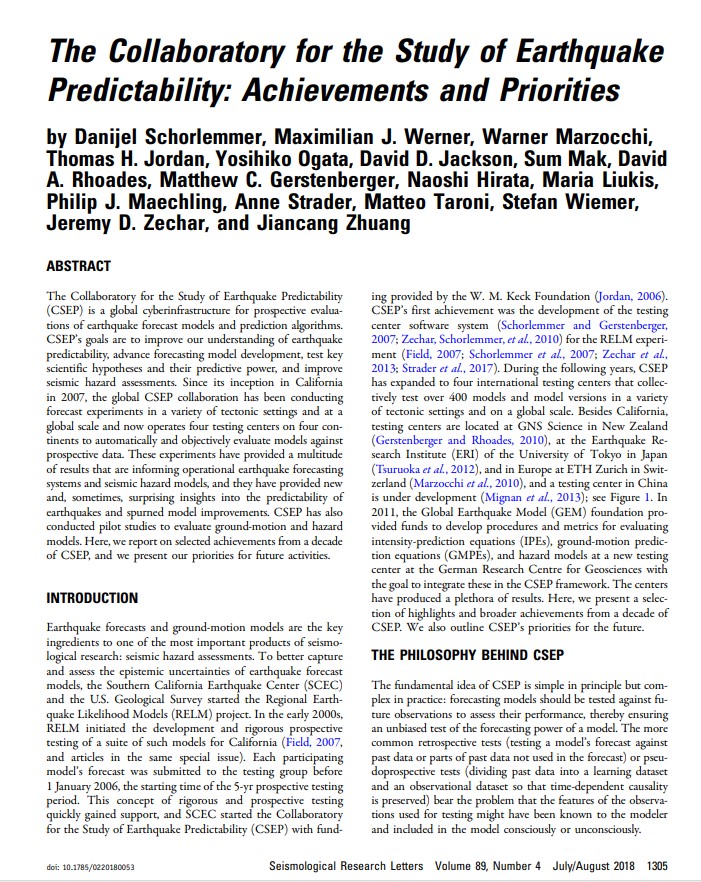The Collaboratory for the Study of Earthquake Predictability (CSEP) is a global cyberinfrastructure for prospective evaluations of earthquake forecast models and prediction algorithms. CSEP’s goals are to improve our understanding of earthquake predictability, advance forecasting model development, test key scientific hypotheses and their predictive power, and improve seismic hazard assessments. Since its inception in California in 2007, the global CSEP collaboration has been conducting forecast experiments in a variety of tectonic settings and at a global scale and now operates four testing centers on four continents to automatically and objectively evaluate models against prospective data. These experiments have provided a multitude of results that are informing operational earthquake forecasting systems and seismic hazard models, and they have provided new and, sometimes, surprising insights into the predictability of earthquakes and spurned model improvements. CSEP has also conducted pilot studies to evaluate ground-motion and hazard models. Here, we report on selected achievements from a decade of CSEP, and we present our priorities for future activities
5
The Collaboratory for the Study of Earthquake Predictability: Achievements and Priorities
Danijel Schorlemmer, Maximilian J. Werner, Warner Marzocchi, Thomas H. Jordan, Yosihiko Ogata, David D. Jackson, Sum Mak, David A. Rhoades
Penerbit :
Seismological Research Letters
Tahun :
2018
epaper
Geofisika
-
No Scan-
-
No Klasifikasidoi: 10.1785/0220180053
-
ISBN-
-
ISSN-
-
No Registrasi-
-
Lokasi TerbitUSA
-
Jumlah Hal9
-
Label-
-
Versi DigitalTIDAK
-
Versi FisikTIDAK
-
Lokasi Rak Buku Fisik//
-
Jumlah Exemplar Fisik Tersedia-




